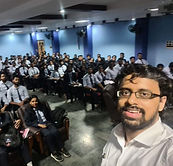Indian Statistical Service Indian Economic Service (ISS IES) 2021 General Studies-2, Question-4

(a) "The Preamble is the key to the whole constitution". Comment.
Answer- The Preamble of the Constitution of any country serves as an introductory statement that outlines the fundamental principles and purposes of the document. It sets the tone and context for the entire constitution and serves as a guiding principle for interpreting and implementing the provisions contained in the constitution.
In the case of the Constitution of the United States of America, the Preamble reads: "We the People of the United States, in Order to form a more perfect Union, establish Justice, insure domestic Tranquility, provide for the common defense, promote the general Welfare, and secure the Blessings of Liberty to ourselves and our Posterity, do ordain and establish this Constitution for the United States of America."
The Preamble of the US Constitution is considered as a key to the whole constitution as it succinctly summarizes the fundamental purposes and principles of the document. It declares that the Constitution was established to promote the welfare and protect the liberties of the American people, and to create a more perfect union.
Additionally, the Preamble outlines the main objectives of the government, which are to establish justice, ensure domestic tranquility, provide for the common defense, and promote the general welfare. These goals serve as guiding principles for interpreting the Constitution and provide a framework for the development of laws and policies that support the general welfare of the American people.
In conclusion, the Preamble of the Constitution is indeed the key to the whole Constitution as it provides the overarching goals and principles upon which the Constitution is based. It serves as a guiding principle for the interpretation and implementation of the Constitution and helps to ensure that the laws and policies enacted by the government align with the fundamental principles and values of the American people
(b) Analyse the powers of the Governor and the causes for their frequent friction with states.
Answer- The Governor is the constitutional head of a state in India and is appointed by the President of India. The powers of the Governor are outlined in the Indian Constitution, and they serve as the representative of the President in the state. The Governor has several powers, including:
1. Executive Powers: The Governor appoints the Chief Minister and other ministers, and they can also remove them from office if necessary. They have the power to grant pardons, commute sentences, and stay executions.
2. Legislative Powers: The Governor summons and prorogues the state legislature, and they can also dissolve the state assembly in certain situations. They can withhold their assent to bills passed by the state legislature and reserve them for the consideration of the President.
3. Financial Powers: The Governor is responsible for presenting the annual state budget, and they can also sanction the expenditure of money from the state exchequer.
However, there are several causes for friction between the Governor and the state government. Some of these causes include:
1. Political Differences: Often, the Governor is appointed by the central government, which may be of a different political party than the state government. This can lead to political differences, and the Governor may use their powers to undermine the state government's functioning.
2. Disputes over Bills: The Governor can withhold their assent to bills passed by the state legislature, which can lead to disputes between the Governor and the state government. This can lead to delays in implementing policies and can impact the functioning of the state government.
3. Dissolution of State Assembly: The Governor has the power to dissolve the state assembly in certain situations, which can lead to friction with the state government. This power can be used by the Governor to prevent the state government from functioning effectively.
4. Appointment of Chief Minister: The Governor appoints the Chief Minister of the state, and this power can be used to appoint someone who is not favored by the state government. This can lead to friction between the Governor and the state government.
In conclusion, while the Governor has significant powers under the Indian Constitution, there are several causes for friction between the Governor and the state government. These include political differences, disputes over bills, dissolution of the state assembly, and appointment of the Chief Minister. It is important for both the Governor and the state government to work together in a spirit of cooperation and mutual respect to ensure the smooth functioning of the state.
(c) Illustrate the challenges and concerns of Parliamentary democracy.
Answer- Parliamentary democracy is a form of government in which the executive branch is accountable to the legislative branch. While it has its advantages, it also faces several challenges and concerns, which are discussed below:
1. Minority rule: In a parliamentary democracy, the party or coalition with the majority of seats in the legislature forms the government, and the leader of that party becomes the prime minister. However, this means that a minority of the population may end up ruling over the majority, which can be a concern for some.
2. Party politics: In a parliamentary democracy, political parties play a significant role in the functioning of government. However, this can lead to excessive partisanship and a focus on winning elections rather than governing effectively.
3. Lack of representation: While parliamentary democracy is meant to represent the will of the people, it may not always do so in practice. Certain groups may be underrepresented or marginalized, which can lead to their voices being ignored or not heard.
4. Corruption: Parliamentary democracy can be susceptible to corruption, as politicians may prioritize their own interests or those of their party over the interests of the people they represent. This can lead to policies and decisions that do not benefit the public.
5. Gridlock: The legislative branch of parliamentary democracy is responsible for passing laws and holding the government accountable. However, if there is a lack of cooperation between the different parties or if there is a hung parliament, it can be difficult to get anything done.
6. Lack of stability: Parliamentary democracy relies on the ability to form a government with a majority of seats in the legislature. However, if no party or coalition is able to do so, it can lead to instability and frequent changes in government.
7. Bureaucratic inefficiency: The government bureaucracy in a parliamentary democracy can be slow and inefficient, which can lead to delays in decision-making and implementation.
Overall, while parliamentary democracy has its advantages, it also faces several challenges and concerns that must be addressed to ensure that it remains an effective form of government.
(d) Discuss the advantages and disadvantages of the Collegium System in India.
The Collegium System in India refers to the system of appointment and transfer of judges to higher courts in India. It is a system where judges are appointed by a group of senior judges instead of the government. Here are some advantages and disadvantages of the Collegium System in India:
Advantages:
1. Independence of the judiciary: The Collegium System ensures the independence of the judiciary as judges are appointed by senior judges rather than the government, which reduces the chances of political interference.
2. Merit-based appointments: The system ensures that judges are appointed based on their merit, experience, and expertise, rather than political considerations.
3. Transparency: The Collegium System is more transparent than the earlier system where the government had the power to appoint judges. The proceedings of the Collegium are made public, and the reasons for the appointment or rejection of a candidate are explained in detail.
4. Accountability: The Collegium System has brought more accountability to the appointment of judges. If a judge appointed by the Collegium system fails to perform their duties satisfactorily, they can be removed.
Disadvantages:
1. Lack of diversity: Critics argue that the Collegium System has failed to promote diversity in the judiciary as judges tend to appoint people from similar backgrounds, leading to a lack of representation from marginalized groups.
2. Lack of transparency: The Collegium System is also criticized for its lack of transparency in decision-making. The system is criticized for being a closed-door process with no scope for public participation.
3. No checks and balances: The Collegium System has been criticized for its lack of checks and balances, as the appointment of judges is entirely in the hands of the judiciary without any role for the executive or the legislature.
4. Tendency towards favoritism: There have been allegations that the Collegium System tends to promote favoritism, as the selection of judges is based on personal relationships and lobbying within the judiciary.
In conclusion, the Collegium System in India has both advantages and disadvantages. While it ensures the independence and merit-based appointment of judges, it lacks transparency and diversity and can also promote favoritism. The system needs to be reformed to address these shortcomings while maintaining the independence and accountability of the judiciary.
(e) Critically examine the recent power shift in Pakistan.
Answer- The recent power shift in Pakistan, with Imran Khan's Pakistan Tehreek-e-Insaf (PTI) party coming to power, has generated significant interest and debate both within Pakistan and internationally. Here are some key points to consider when examining this power shift:
1. Democratic process: Imran Khan's victory in the 2018 general election was hailed as a milestone in Pakistan's democratic process, as it marked the first time that an opposition party had come to power through peaceful and democratic means. However, the election itself was marred by allegations of rigging, and some opposition parties have accused the military of interfering in the process.
2. Military influence: Pakistan has a long history of military interference in politics, and many observers have raised concerns about the extent of the military's influence over the current government. Imran Khan has been accused of being too close to the military establishment and of taking decisions that are more in line with the military's interests than those of the civilian government.
3. Economic challenges: Pakistan faces significant economic challenges, including high inflation, a widening fiscal deficit, and a large external debt. Imran Khan has promised to tackle these issues by implementing structural reforms, attracting foreign investment, and increasing exports. However, progress on these fronts has been slow, and many critics argue that the government's economic policies have been ineffective.
4. Foreign policy: Pakistan's foreign policy has traditionally been dominated by its relations with India and the United States. Imran Khan has sought to improve relations with India, but progress has been slow, and tensions between the two countries remain high. The government has also sought to strengthen ties with China and other regional powers.
5. Human rights: Pakistan has a poor record on human rights, with issues such as forced disappearances, extrajudicial killings, and discrimination against religious minorities. Critics of the government argue that it has not done enough to address these issues, and some have accused it of being complicit in human rights abuses.
In conclusion, while the power shift in Pakistan has brought some positive developments, such as the first peaceful transition of power between different political parties, it has also raised concerns about military influence, economic challenges, foreign policy, and human rights. To ensure a stable and democratic future for Pakistan, it will be crucial for the government to address these issues and work towards building a more inclusive and prosperous society.
To have a better experience, enroll now.
Yes, I want to enroll now.
Thinking about it.



























谷歌seo推广 游戏出海seo,引流,快排,蜘蛛池租售;
Fortune Tiger Fortune Tiger;
Fortune Tiger Fortune Tiger;
Fortune Tiger Fortune Tiger;
Fortune Tiger Fortune Tiger;
Fortune Tiger Slots Fortune Tiger Slots;
谷歌seo优化 谷歌SEO优化;
Fortune Tiger Fortune Tiger;
Fortune Tiger Fortune Tiger;
Fortune Tiger Slots Fortune…
Fortune Tiger Fortune Tiger;
Fortune Tiger Fortune Tiger;
Fortune Tiger Fortune Tiger;
Fortune Tiger Fortune Tiger;
Fortune Tiger Fortune Tiger;
Fortune Tiger Fortune Tiger;